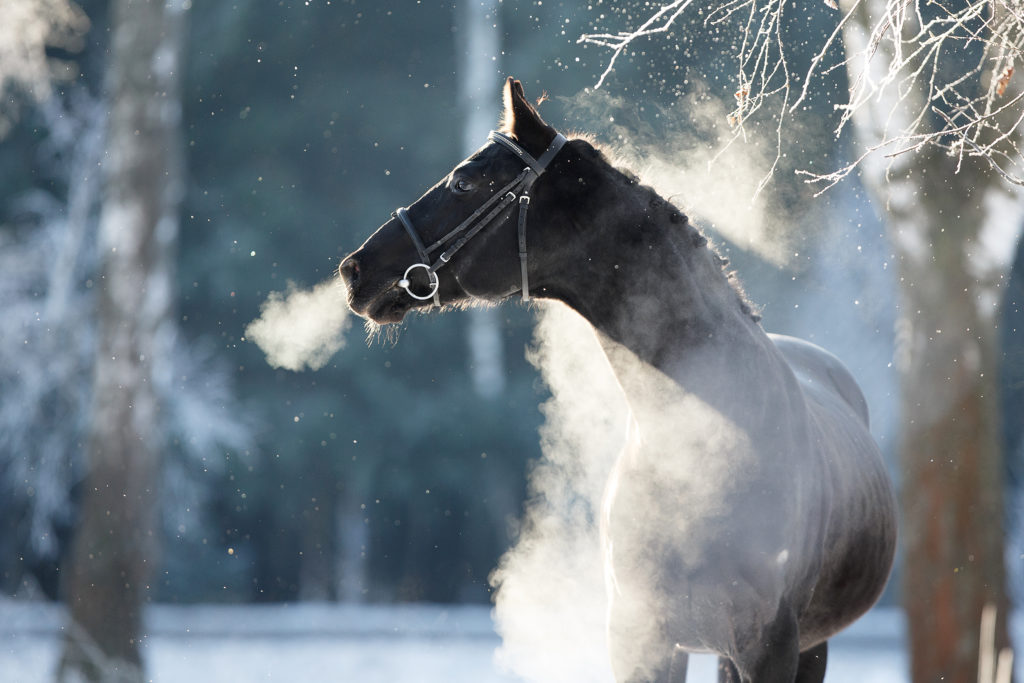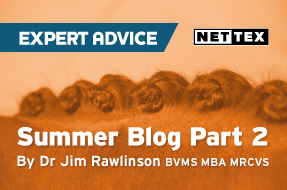How to look after your horse’s respiratory system this winter
 Winter months tend to mean more time in the stable for a lot of horses. With airway disease such as recurrent airway obstruction (RAO) very common in housed horses, it is important that their environment is as ‘respiratory-friendly’ as possible.
Winter months tend to mean more time in the stable for a lot of horses. With airway disease such as recurrent airway obstruction (RAO) very common in housed horses, it is important that their environment is as ‘respiratory-friendly’ as possible.
So how best to beat the coughing, heaving and snotty noses? As with so many things, prevention is always better than cure.
Being outside is optimal, and where possible efforts should be made to maximise turnout. When this isn’t an option, bear in mind the following:
- Ventilation is crucial to respiratory health. Whilst we may enjoy the thought of a rugged-up horse snug and cosy is it’s stable, that may not be what they really need. Good airflow is paramount – the cobweb test is an easy way to check how you’re doing here. If you can’t see any cobwebs – you’ve got good airflow. But if there are lots of dusty cobwebs in the corners of your stables you may benefit from making some alterations.
- Respiratory issues occur when horses react to respiratory pathogens, be that mould spores, tiny plant particles, dust mites or noxious gasses (like ammonia) just to name a few. Reducing their exposure to these pathogens is essential. Hay should be soaked or steamed and fed at ground level rather than tied up. Ground feeding not only reduces the circulating particles in the air but also allows the horse to have his head down which promotes airway drainage – win win!
- Feed and bedding are the main culprits when it comes to respiratory pathogens. Choose options that are as dust free as possible. It’s also very important to keep their stables clean – try not to deep litter as the buildup of ammonia can be very irritating to a horse’s airway. Wetting feed can help reduce circulating dust levels and try supplementing early with a lick or complimentary feed that contains plant extracts and menthol to help soothe and clear airways.
- Take care to check the stables and covered areas surrounding your horses stable too, as this will also have an impact on their environment. If you are storing their hay or bedding, try not to keep this in the next door stable.
- When exercising your horse take extra caution in very cold weather. Horses have a long respiratory tract and they use this to warm up air before it reaches their lungs. When exercising they take quicker longer breaths and there is the risk of cold air reaching their lungs which is irritating and painful. If riding in very cold weather make sure you warm up slowly and thoroughly to allow your horse to acclimatise, and keep the intensity of the session down.
For any product related enquiries please email helpline@nettexequine.com






